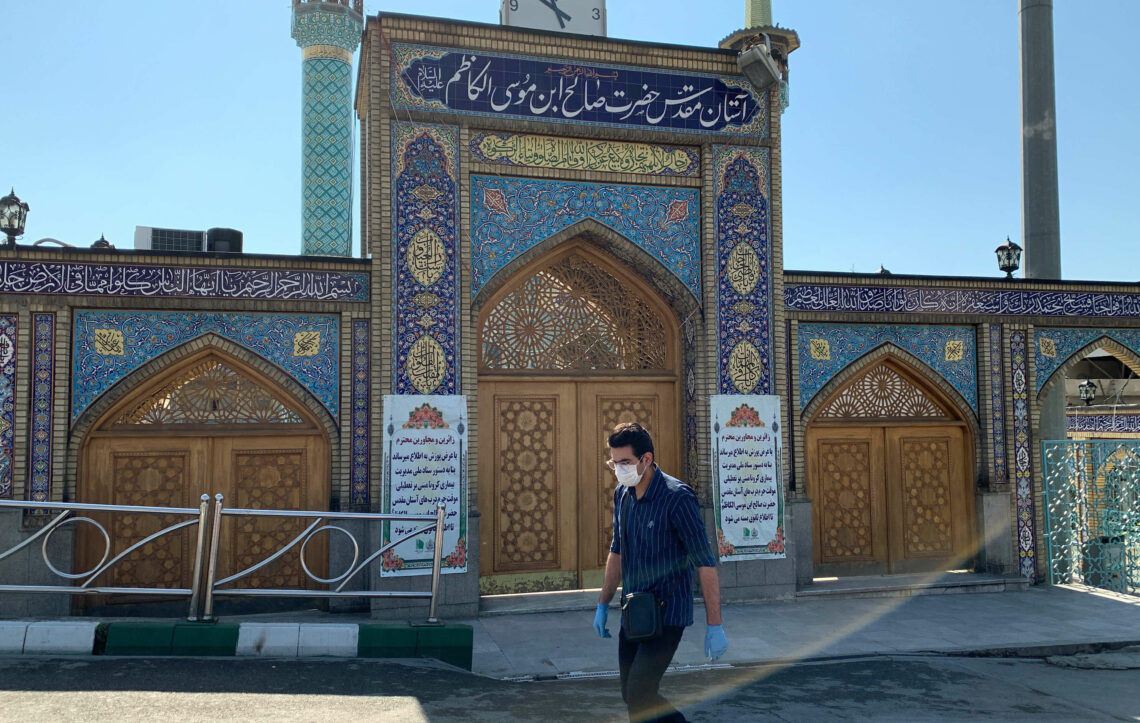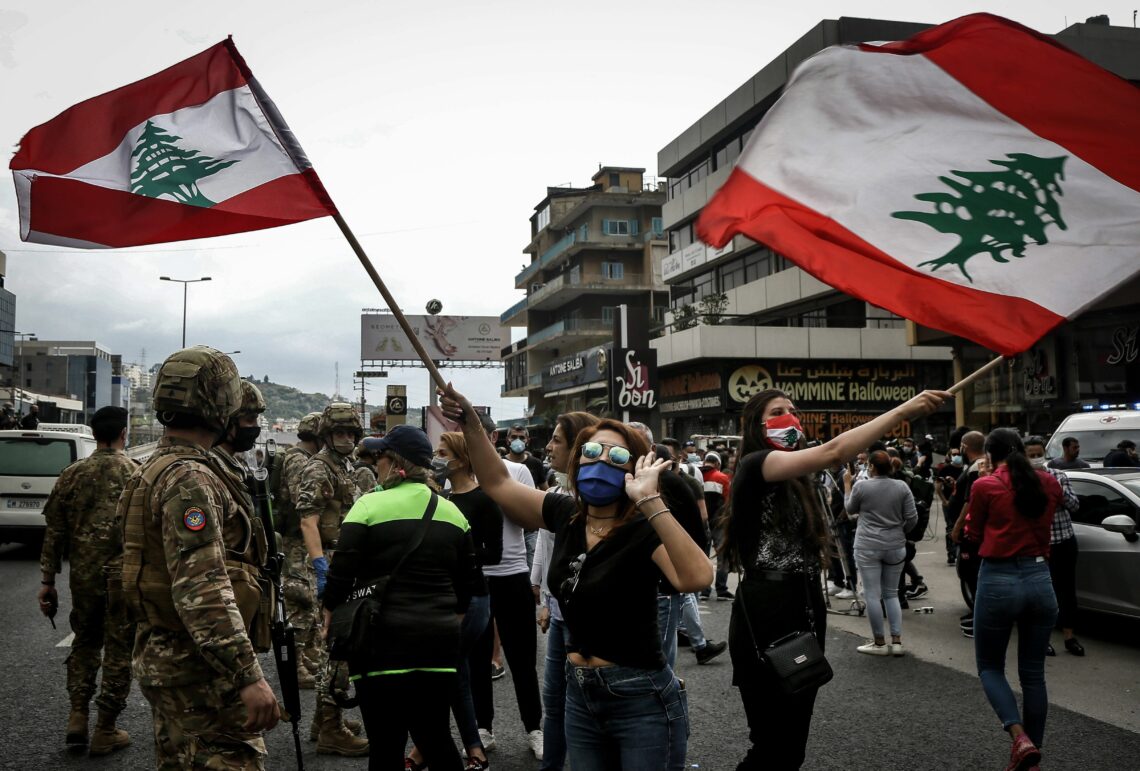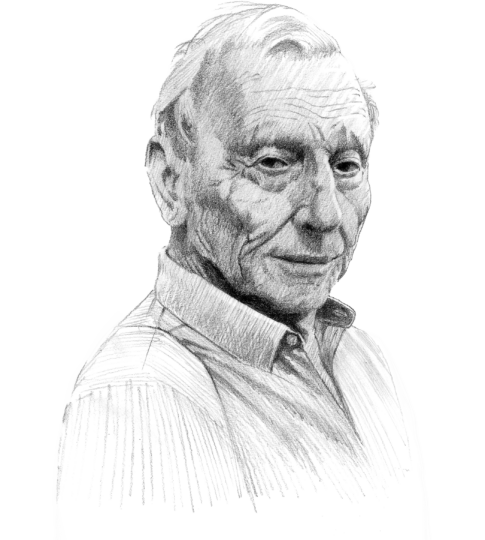In the Middle East, more chaos or a glimmer of hope?
Many expected Covid-19 to spread rapidly throughout the Middle East, but most countries had the pandemic under control early on. However, the drop in oil prices will be felt keenly, potentially leading to a situation that could ignite protests amid dispirited populations.

In a nutshell
- The Middle East stifled the Covid pandemic with strict lockdowns
- Economic hardship could lead to political turmoil
- There are signs that Iran’s regional influence is waning
This report is part of a GIS series on the consequences of the COVID-19 coronavirus crisis. It looks beyond the short-term impact of the pandemic, instead examining the strategic geopolitical and economic effects that will inevitably be felt further in the future.
At the onset of the pandemic, scientists, research institutes and the media expressed fears that the Middle East would be badly hit. They pointed to a lack of political stability and economic development, general poverty, densely populated areas and inadequate health systems. Furthermore, regional armed conflicts have left nearly 10 million refugees living in tents with little access to running water or electricity in Syria, Jordan, Lebanon, Yemen and Turkey.
Today, as the first phase of the infection appears to be abating, the number of victims remains relatively limited. However, the crisis has had a devastating effect on Middle Eastern economies, many of which remain heavily dependent on oil and gas exports, tourism and remittances from expatriate workers. Where there are armed conflicts, there has been no respite in the fighting. Iran is still fomenting unrest in Syria, Iraq and Yemen. Meanwhile, in Libya, external forces on all sides are fueling the civil war to further their own interests.
Rapid response
Together, Iran, Turkey and the 22 Arab countries have a population of nearly 600 million. The official figures (which are not entirely reliable) state that some 350,000 people have been infected. Of that number, 60 percent of the cases are in Turkey and Iran, two of the most developed countries with a combined population of 165 million inhabitants. The virus spread rapidly in Iran because of its extensive commercial ties with China, as well as frequent pilgrimages to its Shia holy cities. Tehran and Ankara were also late in recognizing the danger.
Out of 423 million inhabitants, there were 160,000 COVID-19 cases in the 22 Arab countries. Governments rapidly understood that a devastating health crisis would lead to unrest and threaten ruling regimes, so they took drastic steps well before Western countries. In addition to partial or full lockdowns, authorities made an all-out effort to purchase protective gear for medical teams, test kits and ventilators.
Mosques were closed and public prayers forbidden, even during the holy month of Ramadan. In a stunning development, leading religious luminaries like the Grand Muftis of Egypt and Saudi Arabia called on the faithful to comply. Is this a first instance of the extremist Muslim narrative being interpreted in a more permissive way, as promoted by Egyptian President Abdel-Fattah El-Sisi? Time will tell.
Mosques were closed and public prayers forbidden, even during Ramadan.
The crisis has caught Arab countries in the midst of political and economic upheavals. Demonstrations in Algeria, Iraq and Lebanon were halted by the spread of the virus. Restrictive measures were imposed, but these hampered economic activities, making hardship worse for local populations.
Unrest will probably rise again when the infection eases. In fact, it has started already in Lebanon, where the situation is dire. The Lebanese pound has plummeted against the dollar. Unemployment has risen to 35 percent. A full lockdown was reinstated in mid-May to curb a second wave of COVID-19, making matters worse. For the economy to recover, the International Monetary Fund (IMF) recommends stringent measures. However, the government is reluctant to implement them because they would cause greater suffering for the population and foment turmoil – a dilemma facing most Arab countries.
Elsewhere, ideological conflicts appear stronger than the need to deal with the pandemic. There is no de-escalation in regional conflicts. Though badly hit by the virus, not to mention American sanctions and a 90 percent drop in oil exports (from 3 million barrels a day to 300,000), Iran is intensifying its meddling in neighboring countries and its provocations against the United States. It is harassing American military ships plying the Persian Gulf, while its proxy militias in Iraq launch missiles at U.S. army bases to drive them out of the country.
So far, Washington has chosen to regroup its forces in fewer camps and protect them with Patriot missiles, while hinting that it will hit back. The U.S. is not likely to agree to Tehran’s demand to lift sanctions in view of the humanitarian crisis. The European Union, however, dispatched medicine and medical supplies through INSTEX, its special mechanism set up to circumvent sanctions.
Iran is still developing its arsenal of missiles and has sent a satellite in orbit.
Yet Iran is still developing its arsenal of missiles and has recently sent a satellite in orbit using a rocket (allegedly intended for civilian purposes), demonstrating advanced military capacities. It has also violated a number of terms of the nuclear agreement, but is still refraining from enriching uranium at a higher level.
Tehran kept dispatching delegations to Iraq and to Lebanon and it has been accused of having introduced the virus there. (Turkey hastened to close down its border with Iran only to reopen it later, not to stifle trade flows vital to its economy.) Iranian military experts still fly to Damascus to assist Hezbollah in its efforts to establish attack bases against Israel on the Golan Heights. Precision missiles and other materiel are being sent through Syria.
According to external sources, since the end of March, Israel has carried out six extensive attacks against Shia militias and stocks of Iranian precision missiles shipped as civilian air freight to Damascus intended for Hezbollah in Lebanon. Iran sent more sophisticated armaments to the Houthis in Yemen, who continued targeting Saudi Arabia in violation of the cease-fire announced by the Saudis because of the coronavirus. South Yemen’s temporary council proclaimed the region’s autonomy, bringing to an end the November peace laid out in Riyadh with the official Yemeni government. Few people contracted the virus there, despite poor sanitary conditions in large parts of the country.
Early in March, Iraq closed its Iranian border but was unable to stop delegations from Tehran or Shia militants coming in to build strongholds on both sides of the Iraq-Syria border to safeguard land transit from Iran to Lebanon. Popular protests against corruption and Iranian influence have stopped but are likely to resume in view of the catastrophic economic situation. So far, little has been done to rebuild Mosul and other cities destroyed in the fight against Daesh. Oil exports have remained stable at 4.5 million barrels a day, though with the fall of oil prices the budget has been severely affected. Here too, the official figures of COVID-19 victims appear low: 123 deaths.

In Syria, alongside Iran’s continuing intervention, Turkey is still engaging its proxies to the north. Sporadic fighting goes on in Idlib despite the cease-fire declared by Turkey following an agreement between Turkish President Recep Tayyip Erdogan and Russian President Vladimir Putin. Moscow, waiting for a measure of pacification to begin the lucrative reconstruction process, appears to be losing patience with Syrian leader Bashar al-Assad, whose regime is deeply corrupt. Russian media are now attacking him. According to official figures, less than a few dozen people were infected, which probably means that many cases have gone unreported.
In Iraq and in Syria, Islamic State appears to have found a new lease on life despite having lost all its territory. Its calls for renewed onslaughts on what it calls infidel regimes have led to a growing number of bombings, including deadly suicide attacks, with more than 150 incidents in April. There is no data on coronavirus losses in the area.
Economic fallout
Saudi Arabia was the hardest hit of all Gulf states, with 339 deaths out of more than 62,000 cases as of May 21. The numbers are relatively low for a population of 34 million. The virus appeared in early March. Riyadh then announced that pilgrimages would not be held that year and closed all prayer venues, including the Great Mosque of Mecca and the Mosque of the Prophet in Medina. Public gatherings were forbidden and affected areas were put under lockdown. Special attention was paid to the Qatif region in the north, where the country’s major oil refineries are situated and which is home to a large Shia population. It was there that the pandemic spread fastest, probably brought by pilgrims returning from the sacred Iranian city of Qom.
However, the Saudi kingdom’s primary concern is the free fall in oil prices, which worsened the budget deficit that had appeared five years earlier after a previous drop in prices. Riyadh had to take a $7 billion loan on international markets to cover the loss. Vision 2030, the brainchild of Crown Prince Mohammed “MbS” bin Salman, and its large-scale projects like the futuristic Neom megapolis are in jeopardy. They were intended to reduce the country’s oil dependence and were to be financed by selling 5 percent of Aramco – the Saudi Arabian oil company. MbS is refraining from selling stock now that prices are much lower.
However, the country has reserves of $500 billion in currencies, gold and drawing rights from the IMF. It should therefore be able to control the damage in the near future. Nevertheless, to reduce its deficit, it canceled or postponed financing some of its economic projects, and also stopped providing public service employees with a cost-of-living allowance. The value added tax rate was raised from 5 percent to 15 percent starting from June. Interestingly, the monarch has chosen this moment to do away with the death penalty for juveniles and abolish public flogging – two customs that negatively affected the country’s image. The Saudis warmly welcomed the measures.
There is no lull in the Libyan civil war.
The United Arab Emirates, which has excellent medical infrastructure, took steps in January after the first manifestations of the virus. The country was put on lockdown and flights were canceled on March 25. (A few days later flights to and from Asia were reintroduced.) So far, 233 people have died out of a population of 9 million. The emirates are largely dependent on oil and gas exports and their drop in price is keenly felt.
An important financial center as well as a transit hub for international maritime trade, the UAE is less vulnerable than other countries in the region. Nevertheless, their $109 billion reserves can only tide them over for a few months. The mammoth EXPO DUBAI 20 international fair, originally due to open in October, was postponed to 2021; billions of dollars were invested in the project, which was expected to give the economy a tremendous boost.
Other Gulf states like Bahrain and Oman are facing similar difficulties and have taken loans to compensate for falling oil revenues. Qatar, sitting on reserves estimated at $200 billion, can weather the storm. However, migrant workers account for around 88 percent of its 2.6 million inhabitants, and many of them live in crowded accommodations lacking proper sanitation. Kuwait canceled all flights and imposed a strict isolation policy very early on. In April, it reported the lowest number of cases among the Gulf countries, but then had to reimpose a lockdown after a new spike in infections.
Egypt has reported a very low number of cases: 12,000 for a country with poor medical facilities and 100 million inhabitants. The number seems unlikely to be accurate, though there are no indications of systematic figure tampering. The government has taken steps to halt the spread of the disease and Egyptians are, on the whole, following instructions.
However, the economy is reeling under the loss of its main revenue sources: tourism, Suez Canal transit fees and remittances from the 7 million citizens working in the Gulf states, Europe and the U.S., who are now partially unemployed. Altogether, they accounted for 54 percent of the gross national product.
In Iraq and in Syria, Islamic State appears to have found a new lease on life.
To relieve the pressure, Cairo announced the postponement of value added tax payments, customs and other government fees, but it also had to ask the IMF for an emergency loan of $2.8 billion. It has lost some 10 percent of its estimated $45 billion in reserves. Its annual growth for 2020, previously expected to reach 5.8 percent, will probably drop by 3 percentage points, more if the pandemic drags on. The successful economic policy implemented by President El-Sisi since 2014 has suffered a severe setback.
There are very few cases of the coronavirus in North Africa, but the already faltering economies there were severely affected by the global economic crisis. There is no lull in the Libyan civil war. General Khalifa Haftar, de facto governor of East Libya, has blocked most oil exports to exert pressure on the Government of National Accord, thus dealing another blow to the economy.
In Israel, thanks to a good medical system and stringent preventive measures, including a 14-day quarantine for all entering the country and the cancelation of all flights, results have been positive. There were only 282 deaths for a population of more than 9 million. A sharp decline in new cases has led the government to ease restrictions and implement a carefully monitored return to normalcy with no ill effects so far. The economic shutdown and loss of tourism led to a dramatic rise in unemployment – from barely 4 percent to 28 percent. An aid package of more than $20 billion is expected to speed recovery along.
Optimists believe that Iran will have to retrench because of the situation at home.
In the territories of Gaza and the Palestinian National Authority there have been a limited number of infections, but the danger is not past. Medical infrastructure is lacking; poverty and population density could contribute to a rapid spread of the disease. Israel is collaborating with both entities and providing them medical supplies, as was stressed by the Secretary-General of the United Nations. There are nevertheless accusations that Israel is deliberately disseminating the virus in the area.
Scenarios
Pessimists – a majority for now – think that the crisis is far from over and that with worsening economic conditions people will take to the streets. Violence will become rampant; regimes could fall and others, more dictatorial, replace them. This could happen in Iran, where the Iranian Revolutionary Guard (IRG) may be called upon to kill thousands of protesters to protect the ayatollahs. They, in turn, could try to take over parts of Iraq and Syria to secure Iran’s presence there – with the added risk of open war with the U.S. In Lebanon there is a real possibility of a Hezbollah takeover leading to a renewed round of warfare with Israel.
In Egypt, the army could also be tasked with repressing popular protests. The resulting regional chaos would have consequences for Europe, with millions of refugees at its doors and a potential for violence. Western countries, the U.S. included, seem ill- prepared for such an eventuality – as they were unprepared for dealing with the virus. The United Nations saw the threat too late and its security council has proven woefully incapable of coordinating the fight against the pandemic.
Optimists believe that Iran will have to retrench because of the situation at home. They point out that Tehran has failed to impose its candidate for prime minister in Iraq and had to accept Mustafa al-Kadhimi, a former head of security known to be pro-American. Observers note the signs of a potential partial disengagement in Syria.
Ayatollah Khamenei surprised many by praising Hassan, second Shia Imam, who bowed to the authority of Sunni ruler Muawiyah after losing the battle of Kufa in 661, for having done so for the sake of Islam. The reference could be a hint directed at the U.S. that a settlement between both countries is possible.








